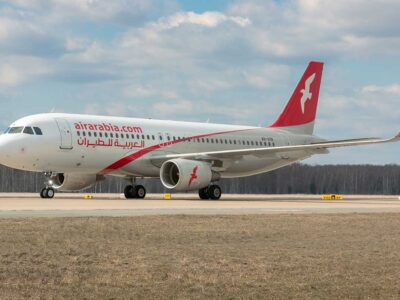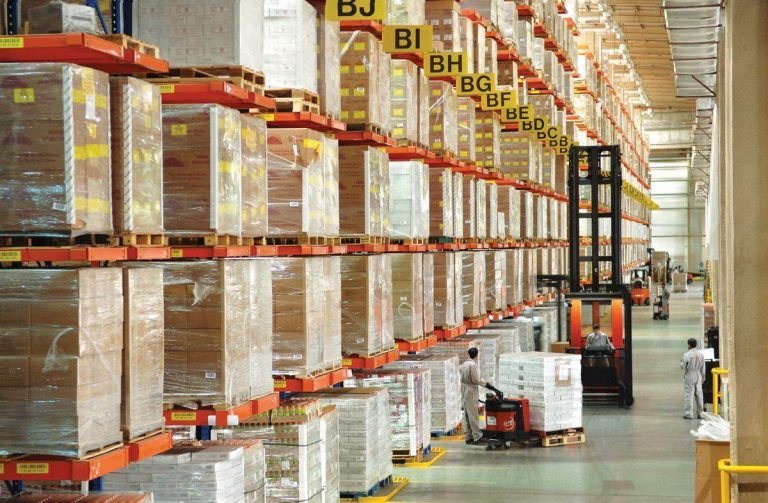Kuwait’s government has faced some tough times in the last few years, and the recent economic figures don’t make for easy reading.
The country’s budget surplus shrunk by half during the most recent fiscal year, according to an independent study by the Kuwaiti Institute of Banking Studies (KIBS), while yearly gross domestic product up to the end of March declined 6.3 percent. It’s safe to say that, with oil prices falling, Kuwait could do with a quick cash injection and is looking to offload some of its costly assets through privatisation.
One man who is all in favour of the country’s push to further privatise its state assets is Tarek Abdulaziz Sultan. The former investment banker joined Agility as chairman and managing director when it was privatised in 1997 and has helped turn it into the largest logistics group in the Gulf.
“We started with about 300 employees and about $30m in revenue. Today, we are close to $6bn and 30,000 employees. If you are the government and looking at what can happen from privatisation it doesn’t take many companies like us to be privatised for the government to have major alternative engines of growth,” he says.
“In the past, the government had to do everything and now they have a different policy. The private sector can grow and create employment opportunities and help us really solve the problems we have.”
Agility started life as the state-owned Public Warehousing Company (PWC) in 1979 but it is now present in around 100 countries and is expanding all the time. Sultan believes the transformation from PWC as a small national player into the private-sector powerhouse that is Agility is a clear example of a successful privatisation model.
“I think to be honest the lessons are for the governments,” he suggests.
“The governments win across the board when they privatise as they free up capital, they can shrink public sector involvement in the economy, which by itself helps grow the country’s GDP… I think our company is a great example of what the government can achieve by privatising a company.”
It is no surprise then that, both as a logistics company operating from Kuwait and as a state-owned body that was successfully privatised, Sultan is interested in taking a stake in beleaguered flag-carrier Kuwait Airways when the government eventually gets around to privatising the loss-making airline.
Last year, the Al Rai newspaper reported that Agility was interested in competing to buy a 35 percent stake in the airline, as part of the company’s strategy of expanding into aviation services. “We don’t know the reason for all these delays although the state’s plans to privatise the company are clear and have been announced and are according to a law that should be executed,” Sultan was quoted as saying.
Kuwait’s parliament first approved a plan in 2008 to privatise struggling Kuwait Airways by offloading 35 percent of the company to specialised local or international firms. But the process has repeatedly been held up. Despite Sultan’s enthusiasm, the Kuwaiti parliament is reportedly considering keeping Kuwait Airways in state hands by reducing the proportion of shares on offer for sale to just 25 percent.
While moves in his backyard with Kuwait Airways may be going slowly, Sultan has his hands full with the firm’s global expansion.
“The infrastructure business is focused primarily on the emerging markets and really building basic infrastructure like airports, warehouses and other services and assets that are required for trade. That business is continuing to grow and develop and was a strong year last year and we expect our strengths to continue,” Sultan says.
“The global supply chain business is a challenge and the growth rates there are flat [but] through better financial discipline we are able to operate more efficiently and drive more profits.”
The expansion certainly is paying off and the company last month announced its full-year 2014 financial results, reporting a net profit of $168.1m, a rise of 10 percent year-on-year. Revenues for the year stand at $4.51bn, up 6 percent year-on-year.
“Agility has steadily grown bottom-line profitability across its various business entities over the last three years,” Sultan says, but it is obvious there have been differences in how its various sectors and businesses have performed.
Its global integrated logistics business (GIL), which is part of the supply chain for goods across the globe, saw revenue decline 6 percent to $3.5bn for 2014. The slight decline was put down to global economic volatility and the winding down of major logistics project contracts in Australia and Papua New Guinea.
Despite this, margins have expanded from 21.8 percent in 2013 to 23.4 percent in 2014, mainly due to the growth in logistics contracts in the Middle East and Asia, where Agility opened new facilities and boosted its volumes from existing and new customers. It also managed to improve yields from its air freight business, which helped offset some of the continued margin pressures on the ocean freight side.
While the GIL sector was challenging, Agility’s work on logistics infrastructure, such as real estate, saw revenues increase by 18 percent to $1bn, when compared with the full year of 2013.
“Agility’s infrastructure companies have historically performed well, and this year was no exception. We continue to believe in the long-term opportunities that the infrastructure companies have to tap into niche segments in emerging markets across the Middle East, Asia, and Africa,” Sultan says.
“We add value to our customers by being willing to go in early, investing in infrastructure that enables trade, building local capacity, and continuing to deliver even through the tough times.”
Despite the 10 percent rise in profits for 2014, Reuters reported last month that Agility trimmed its dividend payout for 2014, with its board proposing to pay shareholders a cash dividend of 0.035 dinars a share and 5 free shares for every 100 held for 2014. While the payout was in line with the 2013 figure, the cash amount was below the 0.04 dinars paid in the previous year, according to Thomson Reuters data.
Sultan says the trimmed down dividend is so the company can retain capital to fund its ongoing expansion plans.
“That is correct. We do have to obviously continue to grow and we have some interesting projects that will require capital, to the extent we will keep that capital on our balance sheet and fund it ourselves, which will be good for the shareholders in the long run,” he explains.
Using this bank of capital, Agility is planning to invest $100m expanding into emerging markets this year, with Africa a prime focus. Among the target markets for the company’s expansion are Ghana, Mozambique, Angola and Nigeria as they have been benefiting from an improved performance in their oil and gas sectors, as well as growing populations and consumer spending.
“Africa is a growing market and it’s one of our last frontiers — we’ve invested but not as much as we would have liked,” says Essa Al Saleh, chief executive of Agility’s GIL unit.
Agility already has operational capacity in 11 Africa countries and has a complex supply chain operation in the challenging West African region. In addition, in 2014, its subsidiary National Aviation Services expanded its ground-handling footprint on the continent with a new facility in the Ivory Coast, while Tristar, its fuel logistics company, owns and operates more than 30 terminals in Africa with more than 60 million litres in storage capacity. In addition, Agility recently opened new business development offices in Mozambique and Ghana as part of its focus on the continent.
“Clearly the area of focus for us has been emerging markets… That is a large number of countries to focus on but we are very bullish on Africa, in part because the challenge in Africa is a lack of infrastructure and a lack of supply chain and that is part of our value proposition. We invest in those capabilities where they don’t exist and there is clearly a need and I think our growth in Africa is going to be rapid,” says Sultan.
“We are primarily investing in airport and ground-handling opportunities,” he says of the $100m he has in his treasure chest to invest. “So every time we invest in an airport or there is an airport that wants to tap into some our expertise we are ready. Problems are associated with electricity, problems of a lack of infrastructure… So we are looking to centres throughout Africa where we will provide turnkey infrastructure projects, giving electricity, water and communications and security all in one.”
With ongoing conflicts in Libya, Iraq, Syria and Yemen, Agility already faces issues in terms of security. However, Sultan points out that, as a global company, it is used to dealing with challenging markets.
“Generally we have worked in environments that have had security challenges, whether in Egypt or Iraq, and we are doing the United Nations humanitarian mission in Sudan, so we are operating in difficult environments. The fact of the matter is, in the long run, strife and uncertainty is not good for growth and the reality is that even during the conflicts in Egypt you needed access to diapers and medicines and food and someone had to do that.
“Syria and Libya are on hold until a resolution of the security issues. Having said that, if you look at a country like Iraq we are very active in Iraq in the oil and gas industry and elsewhere. It is hopefully the case that focusing on these challenging markets you can give a value proposition to our customers and our shareholders,” he says, adding that the company at present also doesn’t operate in conflict-ridden Yemen.
In terms of Iran, he also confirms that the business does not operate in this market as a result of the ongoing complications due to the sanctions still imposed by the European Union and the US.
“Generally we follow the mode of what the international community establishes as the mode for engaging with a country and there are certain regulations that apply to our customers and we have to respect those regulations whatever they may be. Our customers demand that you comply with those regulations set by the UN and EU bodies and we do the same.”
However, Sultan told Reuters last year he was looking forward to the sanctions barrier coming down as a result of discussions between Tehran and western leaders and is aiming to enter the Iranian market as soon as it is possible.
“When the international situation is resolved and restrictions are lifted, we’ll be among the first ones in there.”
Another slightly different, but much more headline-grabbing, challenge facing Agility is its ongoing legal battle with the US military.
The case centres on allegations, which the firm has denied, that it overcharged the US army over supply contracts. In August last year, Agility said the US Department of Justice was seeking “substantial damages” and that it remained suspended from bidding for new US government contracts.
“The legal case is still pending and there is really not much more to add. I’d rather not get into that as we have a legal dispute and let’s leave it at that,” Sultan says of the case.
However, the dispute has not prevented Agility from winning other military-related business as late last year one of its subsidiaries, Agility Defense and Government Services, won an $82.5m contract from Britain’s Ministry of Defence to manage household moves for ministry and armed forces personnel until April 2016.
With all these expansion plans in place, where does Sultan plan to get the money to finance its growing global footprint?
“Our preference has always been to use our own balance sheet to finance and it is something we felt was always a key part of our success. You need a flexible enough financial structure to enable us to grow in other markets as it is often the case that financing is not available to you if you invest in a part of the world that the international community thinks is risky.
“But, going forward though, [we are] investing in areas that are extremely important to global growth. So we have the key stakeholders like the African Development Bank that are very interested in the sort of projects we are doing as there are huge multipliers associated with them. If you are investing in airports you are helping airlines come to a new destination and there are a whole lot of jobs created and we can see closer collaboration with these development organisations as what we are trying to achieve is pretty consistent.”
Consistency seems to be the Agility approach and, with Sultan due to celebrate his 20th anniversary at the helm in 2017, this looks set to continue. It is also a pretty a solid example of what Kuwait can achieve by privatising some of its crown jewels.








